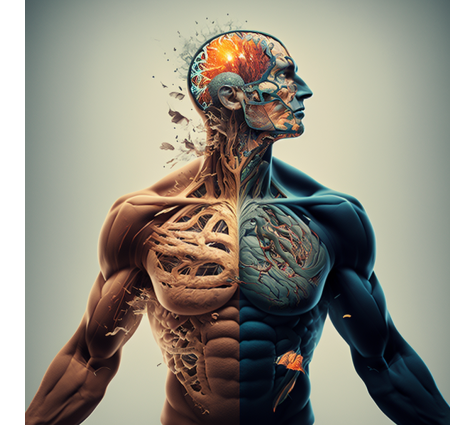Nicotine is a highly addictive substance found in tobacco products, including cigarettes, cigars, chewing tobacco. It is also present in e-cigarettes and other vaping products. Despite the widespread knowledge of the dangers of smoking, nicotine addiction is still a significant problem worldwide. In this blog post, we will delve into the chemical and biological mechanisms of nicotine addiction and explain how it can impact your health and wellbeing.
What is Nicotine?
Nicotine is a chemical compound that acts as a stimulant and sedative. It is found in the leaves of the tobacco plant and is highly addictive. Nicotine is responsible for the rush of pleasure and energy that smokers feel when they smoke, making it one of the most commonly used addictive substances in the world.
How Nicotine Affects the Brain
When nicotine enters the body, it quickly reaches the brain and binds to nicotine receptors, which causes the release of dopamine, a neurotransmitter associated with feelings of pleasure and reward. This dopamine release is what makes nicotine so addictive, as the brain craves the pleasurable sensation. Nicotine also increases the levels of adrenaline, which leads to an increase in heart rate, blood pressure, and respiration.
Physical Effects of Nicotine on the Body
Nicotine addiction can cause a wide range of physical effects on the body, including increased heart rate, constricted blood vessels, and reduced blood flow to the skin. Over time, nicotine can cause serious health problems, including lung cancer, chronic obstructive pulmonary disease (COPD), heart disease, stroke, and other types of cancer.
Health Risks of Nicotine Addiction
Nicotine addiction is a significant public health issue, responsible for millions of deaths worldwide. It is the leading cause of preventable death in the United States, with approximately 480,000 deaths per year attributed to smoking-related illnesses. Long-term nicotine use can lead to a variety of health issues, including lung cancer, heart disease, stroke, and COPD.
How to Quit Nicotine
Quitting nicotine can be challenging, but it is possible with the right approach. There are many strategies that can help people quit smoking, including nicotine replacement therapy, counseling, support groups, and medications. It is essential to seek help from a healthcare professional to create an effective plan for quitting.
Alternatives to Nicotine Products
There are alternatives to nicotine products, including e-cigarettes, nicotine patches, gum, and lozenges. However, these products are not without risk and may also be addictive. It is essential to weigh the risks and benefits of using these products and to discuss them with a healthcare professional.
If you are struggling with nicotine addiction, it is important to seek help. Speak with your healthcare provider or a counselor to create a plan for quitting nicotine. Remember that quitting is a process, and it may take time to succeed. Be kind to yourself and stay motivated to reach your goal of a nicotine-free life.
Disclaimer: The information provided in this blog post is for informational purposes only. It is not intended to be a substitute for professional medical advice, diagnosis, or treatment. Always seek the advice of your healthcare provider with any questions you may have regarding a medical condition. The FDA has not approved any statements or products mentioned in this blog post.



Leave A Comment